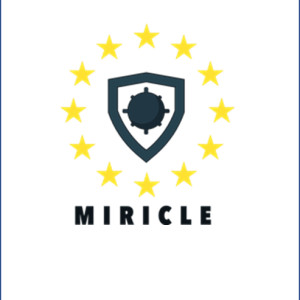 \
&
Contact us
\
&
Contact us
 \
&
Contact us
\
&
Contact us
Published on | 1 year ago
Programmes ERCThe results of the 2023 European Research Council (ERC) Starting Grant call (call deadline 25 October 2022) were published. Starting Grants are open to researchers with 2-7 years of experience since completion of PhD (extensions are possible under certain documented circumstances), a scientific track record showing great promise and an excellent research proposal.
Proposals are evaluated in 27 evaluation panels in three research domains (Physical Sciences and Engineering, Social Sciences and Humanities and Life Sciences) composed of top scientists and scholars coming from all over the world and in addition by remote referees with necessary specialised expertise (two to five per proposal).
Of the 2696 submitted proposals 400 researchers with 44 different nationalities received an ERC Starting Grant: 110 In Life Sciences, 173 in Physical Sciences and Engineering and 117 in Social Sciences and Humanities. In the ERCEA news articles more background on the evaluation results, call statistics and several project examples are highlighted.
However the statistics and final list are provisional since the UK is still considered non-associated to Horizon Europe. The successful proposals of applicants based in a country in the process of associating to Horizon Europe will be eligible for funding only if the relevant Horizon Europe association agreement applies by the time of the signature of the grant agreement.
Among the 400 selected researchers are fourteen based at Flemish host institutions. The projects of these fourteen Principal Investigators (PIs) are presented in the news articles of Universiteit Gent, KU Leuven, Universiteit Antwerpen and VIB.
We offer news and event updates, covering all domains and topics of Horizon Europe, Digital Europe & EDF (and occasionally, for ongoing projects, Horizon 2020).
Stay informed about what matters to you.
By signing up, you can opt in for e-mail notifications and get access to
a personalised dashboard that groups all news updates and event announcements in your domain(s).
Only for stakeholders located in Flanders
Health Culture and society Security Digital, Industry & Space
The Norwegian University of Science and Technology (NTNU) has compiled a set of brochures, showcasing what NTNU's researchers can bring to the table on the topic of the six clusters within pillar II of the Horizon Europe programme. A seperate brochure covers the expertise NTNU can bring in the context of the 5 EU Missions. Through a mapping ex... read more

The Miricle project, ‘Mine Risk Clearance for Europe’, obtained funding under the European Defence Industrial Development programme call ‘Underwater control contributing to resilience at sea’. The main objective of the project was to achieve a European and sovereign capacity in future mine warfare and create a path for the next generation ‘made in Europe’ countermeasure solutions. In order to realise this objective, Miricle addressed various stages: studies, design, prototyping and testing. These stages inter alia included the successful testing of an XL Unmanned Underwater Vehicle, a protototyped mine disposal system and multiple innovative systems to detect buried mines. Flanders Marine Institute (VLIZ), was one of the five Belgian partners in the consortium. Within the project, VLIZ was able to forward its research on the acoustic imaging of the seabed to spatially map and visualize buried structures and objects - in this case buried mines - in the highest possible detail. VLIZ also led the work on ‘Port and Offshore Testing’, building on the expertise of the institute in the field of marine operations and technology.